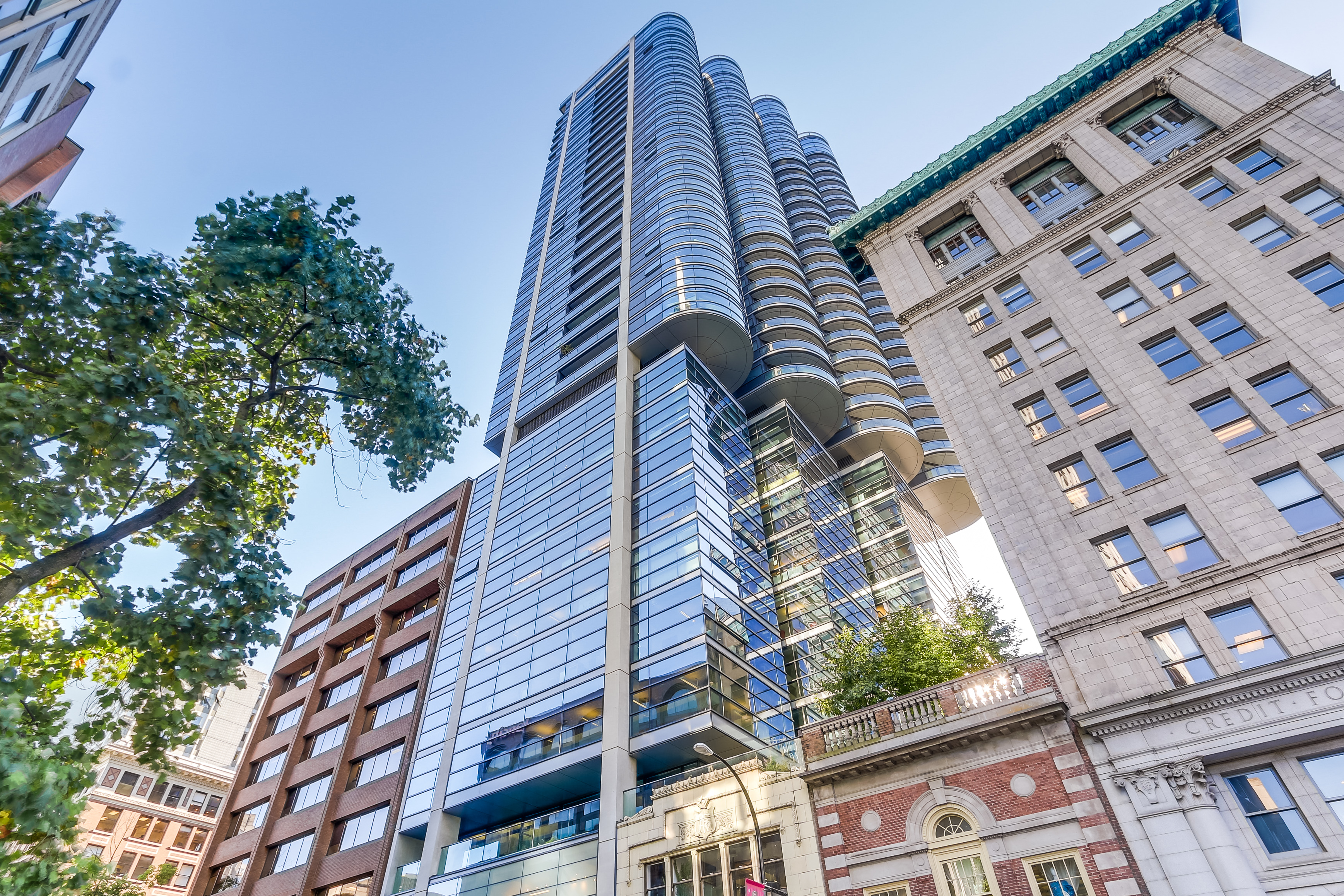8 bylaws crucial for selecting the right Vancouver condo

While Location, Location, Location is often meant in terms of the neighbourhood, it applies equally to the community within buildings. Each building has its own flavour with some considerable differences such as whether you’ll bump into neighbours walking their dogs or if you live in a dog-free building. Towards maintaining a cohesive community, each condo building (Strata) has a set of bylaws that set the stage for how residents live together.
You must confirm that the bylaws reflect your lifestyle. Otherwise, it can cause friction with your neighbours and lead you to move prematurely.
In this previous post (link), I provided tips on how to review the Strata documents you’ll receive when completing your due diligence. This previous post (link) contains a high-level review of bylaws and rules while, below, I delve into the 8 bylaws you need to understand to make the best informed decision.
When do you review bylaws?
Viewing MLS real estate listings is a sport in Vancouver and marks the start of nearly everyone’s home purchase journey. A complete MLS listing will convey an accurate and high-level review of the bylaws for rentals, pets, and resident age (admittedly, completeness isn’t universal). If you have a dog that people mistake for a horse or other unique requirement, it’s better to find out if it’s permissible early in the process to save time and avoid disappointment.
Once you’ve selected a condo and you’re doing your due diligence to determine whether it’s ‘the one’, you’ll then receive a complete version of the Strata’s bylaws to pour over.
Resource: Critical due diligence and how your realtor should help ensure the condo is right for you
Make sure you have the latest version of the bylaws
Your realtor will obtain the Strata documents from the listing realtor (seller’s realtor) and provide them to you. If there’s any doubt as to whether they’re the official version, the registered version can be pulled directly from the Land Title Office.
Pro tip: Check the Form B and the AGM and SGM minutes to see if there’re any approved bylaws not yet registered in the official version.
If the Strata is sectioned (divided between different owners), make sure you have the bylaws and rules pertinent to your section.
Lifestyle, Lifestyle, Lifestyle
As noted above, the goal is to find a building community that reflects your lifestyle. You need to investigate qualities important to you, which may include:
- Do the bylaws separate the Strata into sections or types? If so, which part pertains to the condo you’re considering?
- Is your pet allowed or will your neighbours have pets? If so, what kind of pets and how many?
- Is there the potential for a nearby condo being used as a rental, including a short-term rental?
- Are the number of occupants in each condo limited?
- Will you see/hear children and young adults or is the building age-restricted?
- Will you be able to smoke in your condo? Is there the potential for smelling smoke from neighbours?
- Will you require Strata Council approval for the renovations you want to do? Can you install laminate flooring, a dishwasher, or a clothes washer/dryer?
- Will you be able to barbecue on your balcony? Will barbecue smells waft into your condo from neighbours?
- What are the fines for bylaw and rule infractions?
8 bylaws that will impact you
Below is an overview of the major bylaws that you need to understand before committing to a particular home. This is by no means an exhaustive list and you should also be attentive to any bylaws that don’t immediately appear applicable to your goals but will have a secondary impact. For instance, while Fido adheres to the pet bylaws, if he barks excessively, he may be deemed to contravene the bylaw stipulating that residents have the right to enjoy their homes and encouraged to find a new address.
Sections or types
While a sectioned Strata probably won’t limit the way you use your home, it’s worth noting as it’s becoming increasingly rare to find buildings that are monoliths of residential homes. This is good news as mixed-use buildings, those with both residential and commercial units, are better at establishing a vibrant neighbourhood. In such developments, it’s common to find the strata is sectioned between the different uses to enable flexibility in management.
When sectioned, the group of commercial units will be one section and the other will be comprised of the residential units. Each section has their own management, which collaborates in the management of the overall development. For instance, if there’s a swimming pool that only the residential residents can access, the pool costs can be allocated to only the residential units and not the commercial tenants.
Types are employed to divide residential condos into groups, again to enable more nimble management. For example, townhomes and apartments can be different types within a Strata.
Use of property
An overarching tenet of strata living is that residents have the right to enjoy their homes. Although you may not contravene the bylaws specific to a particular item (e.g. visitors, rentals or pets), the Strata will fall back upon this bylaw to take action. In working to remedy any issue, the Strata usually begins with issuing warnings before progressing to fines for continued contraventions (read more about maximum fines). Being mindful of your neighbours goes a long way towards maintaining a pleasant community.
Rentals
Although there are the following 3 classifications, essentially, rentals can be prohibited or allowed with restrictions. Most buildings fall within the realm of “you can rent but you have to…”.
As a precaution against unexpected life circumstances, I nearly always suggest to my clients that they focus on buildings that allow rentals.
1. Rentals allowed without restriction
While this is the most lax rental situation, the absence of rental bylaws does not equate to a free-for-all. The City of Vancouver requires rentals be for at least 30 days unless a short-term rental licence is granted. Such licences require Strata approval so the Strata may still restrict short-term rentals by withholding approval.
Watch in the bylaws for onerous move-in/move-out fees and other secondary bylaws that’ll dissuade rentals, especially short-term rentals.
In renting out a home, you’ll need a short-term licence (City website) or long-term licence (City website) from the City of Vancouver.
2. Rentals allowed with restrictions
Rental restrictions are usually based on requiring a minimum rental period or specifying a maximum number of rentals within a building. I frequently see rental duration limited to at least 30 days, 3 months, 6 months, and 1 year. The number or percent of rentals allowed usually spans from a handful of units to approximately 50% of the total umber of units.
If a very low number of units can be rented, it’s essentially a no rental building. Limiting rentals to a handful of units, usually 1, 2 or 3 condos, is more often seen in older buildings and probably a result of the Condominium Act, which was superseded by the Strata Property Act.
3. Rentals prohibited
Bylaws may outright prohibit rentals, however, the BC Strata Act overrules Strata bylaws and it contains some instances where such rental prohibitions don’t apply. The below linked post reviews these and other lesser-known options for renting out your condo when restrictions are in force.
Resource: 8 options for renting your condo despite bylaw restrictions
Pets
Similar to rentals, bylaws can allow pets with restrictions or outright prohibit them. While a Strata may appear to lack pet restrictions, in reality, there are always restrictions against dangerous or nuisance pets (think biting people or excessive barking). Commonly seen restrictions include the type, number, and size of pets. The number of cats and dogs is often limited to 2 (2 dogs, 2 cats, or 1 of each). Any size limits are usually applied to the height and/or weight of dogs.
Condo occupants
There may be a bylaw that limits the number of occupants in each unit. When specified, I’ve seen limits of 2 people in a studio or 1 bedroom and 4 people in a 2 bedroom condo.
While this appears to be reasonable upon first glance, what if you’re a couple with a baby looking to live in a studio or 1 bedroom home? This is when you need to reach out to the Strata Council during your due diligence before deciding whether the condo is the right home for you. I have seen Stratas count babies as a person in terms of their bylaw. In such instances, this condo is not the right home for you. Even if they don’t count babies as an occupant, proceed with caution as Strata Councils and situations can change.
Barbecues
Some buildings prohibit barbecues. Those that allow personal barbecues, almost always limit them to propane or natural gas. Some buildings provide barbecues on a common patio for all residents to use.
Smoking
Smoking will be prohibited in common areas of the buildings (including the lobby, hallways, and fitness facilities) and your balcony or patio. Some Stratas have gone as far as prohibiting smoking within condos.
Renovations
You’ll require Strata Council permission (and a City permit) if your renovation involves moving walls, electrical, or plumbing. They can also list specifications such as requiring the exterior of window coverings to be a certain colour (to maintain the integrity of the building when viewed from outside). If the building is older and/or units don’t have a dishwasher, washer/dryer or other appliance, you should confirm whether the appliances you want can be added. It’s good to confirm even if the appliances are installed in an older condo as they may have done so without permission.
I hope this helps you navigate the bylaws and select the right building community. As always, I welcome your questions and comments.
Jason Hutchison
604.314.7138 [email protected]
Title image: Jameson House, 838 West Hastings Street, Vancouver (read the building review and see floorplans and listings)
